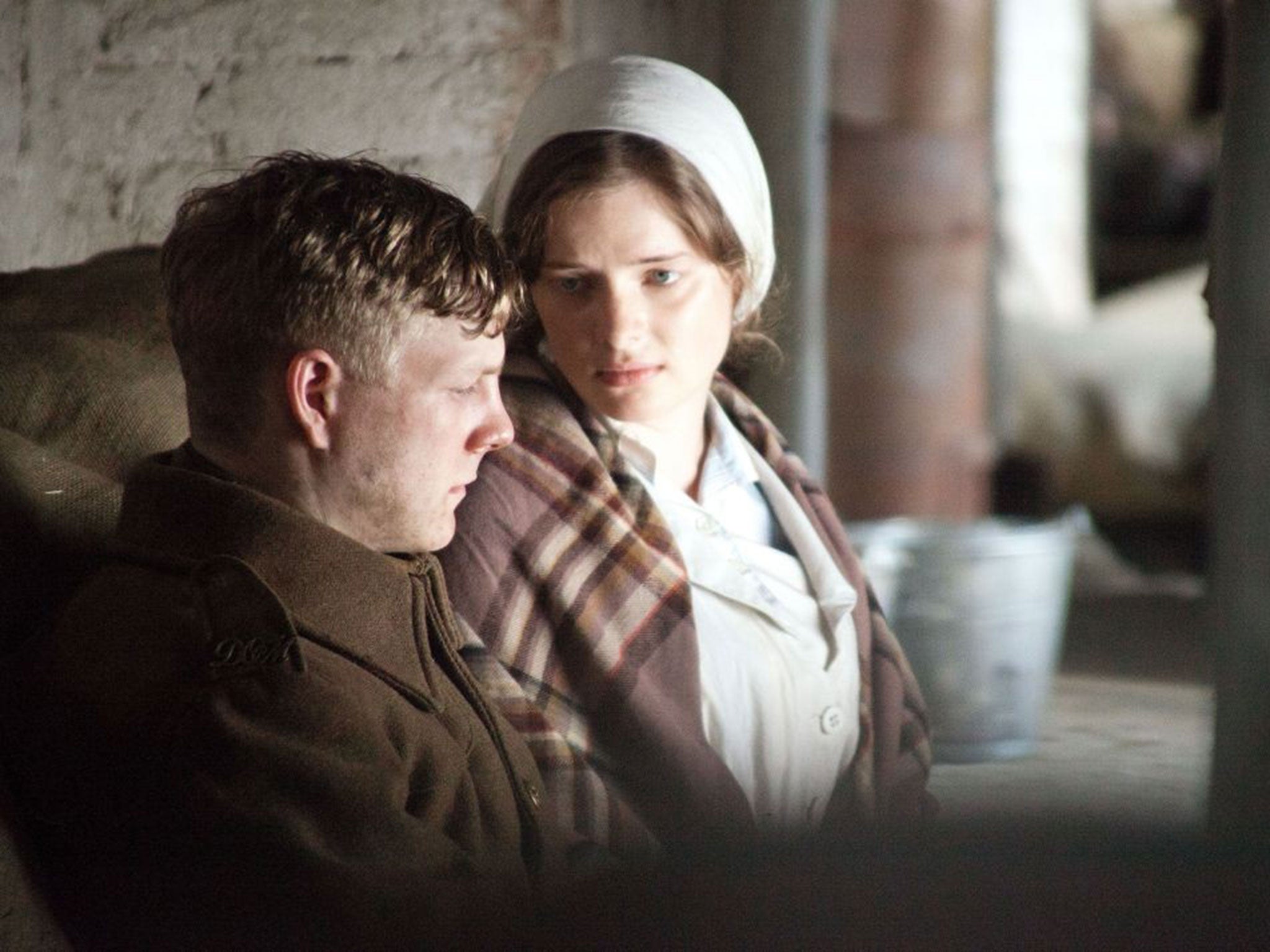The Passing Bells, BBC1, TV review: The First World War drama for children
Today’s children can cope with the horrors of war – so why patronise them with clichés?

It helps to remember that The Passing Bells (BBC1) – which has been airing every evening this week – is really a First World War drama for children. Or at least young adults with little knowledge of world events between 1914 and 1918.
Tony Jordan, a former lead writer on EastEnders, has said he wrote the five-part series with a pre-watershed audience in mind and that makes sense. After all, many soldiers were little more than children when they signed up to fight in the Great War.
The problem with his approach is that much of what makes this drama accessible to family audiences also renders it implausible and obvious to anyone else who happens to tune in. Even after four episodes, hearing German soldier Michael Lang (Jack Lowden) speak English as perfectly as his British equivalent Thomas Edwards (Patrick Gibson) is more irritating than it is thought-provoking.
The story had reached 1917 (each episode covers a year of the war) and both protagonists had a scene in which they discussed a dawning awareness of the futility of war. “This isn’t a war like I read about in school, like I thought it was gonna be... what if it never ends?” said Tommy, just as many tommies, in many BBC dramas, have said before him. Later, their stories intertwined, with Michael now a prisoner of war and Tommy, accompanying the PoWs to their camp. When Michael decided to make a run for it, Tommy had him in the sights of his gun, but decided to spare him. Later, Michael unwittingly returned the favour.
They’re just the same as each other, see? They both have girlfriends they’re desperate to be reunited with, mothers who worry and fathers with heavy moustaches. The point is a fair one, but not quite profound enough to justify the annoying orchestral score that accompanies each additional emphasis.
A realistic depiction of the horrors of war would be too violent for the 7pm timeslot, of course, but without it there’s not enough to distinguish the reality of the trenches from the derring-do adventure that Tommy/Michael had childishly imagined. And let’s not imagine we’re sparing the sensitivities of today’s teenagers by omitting it. Most of them probably have games on their smartphones more graphic than this.
Subscribe to Independent Premium to bookmark this article
Want to bookmark your favourite articles and stories to read or reference later? Start your Independent Premium subscription today.

Join our commenting forum
Join thought-provoking conversations, follow other Independent readers and see their replies